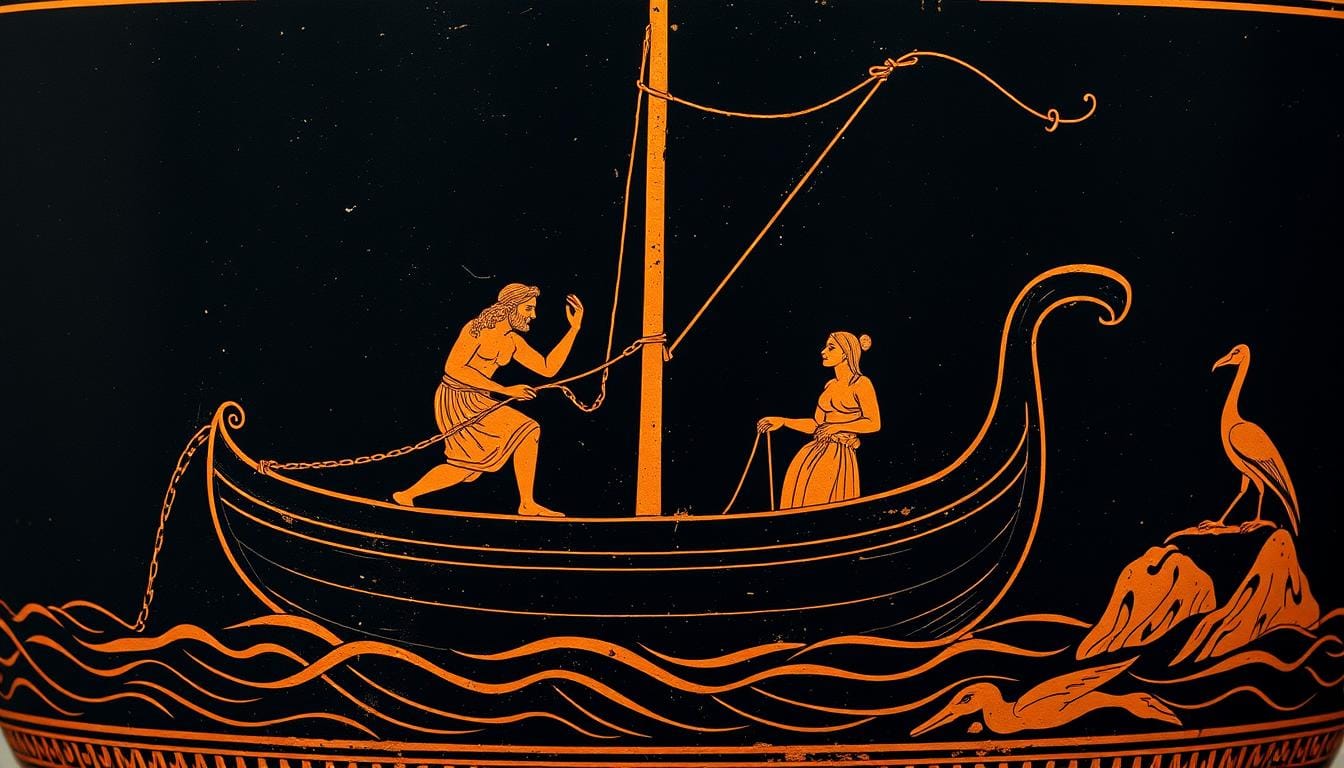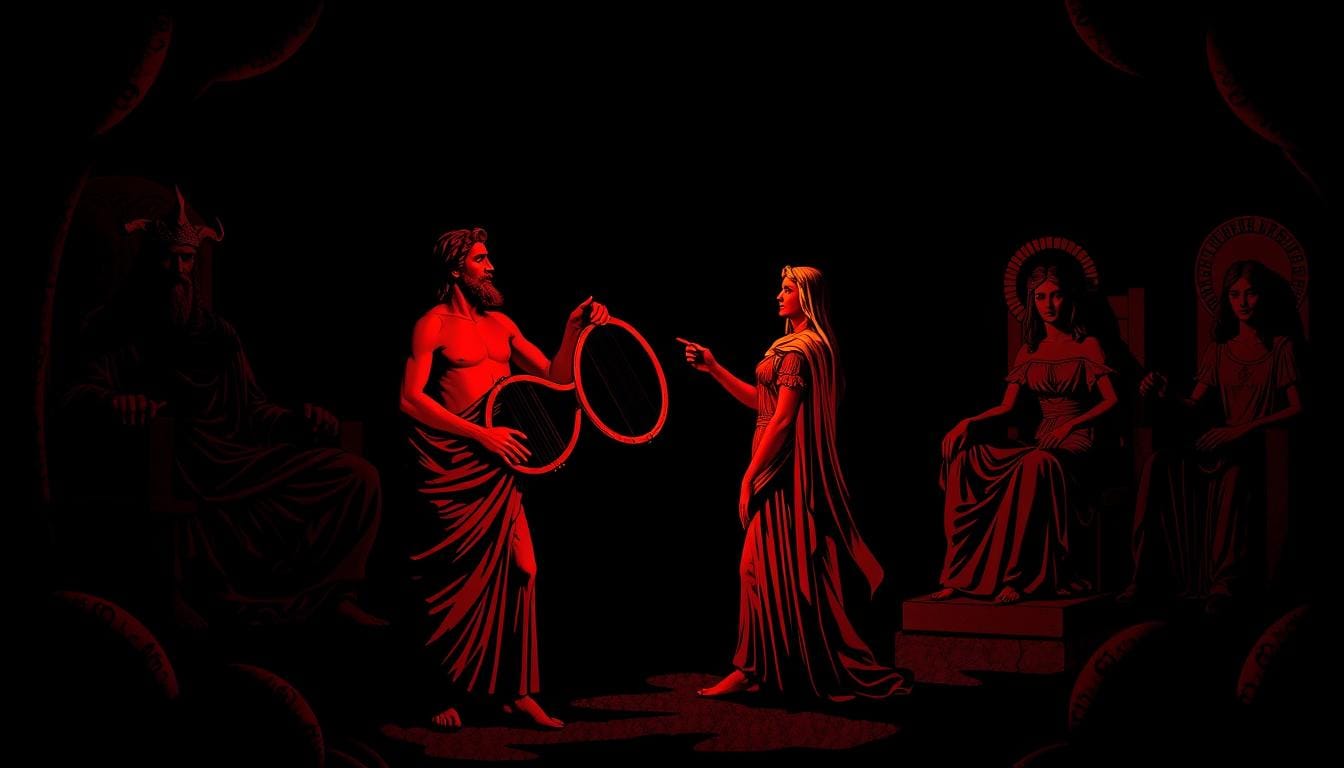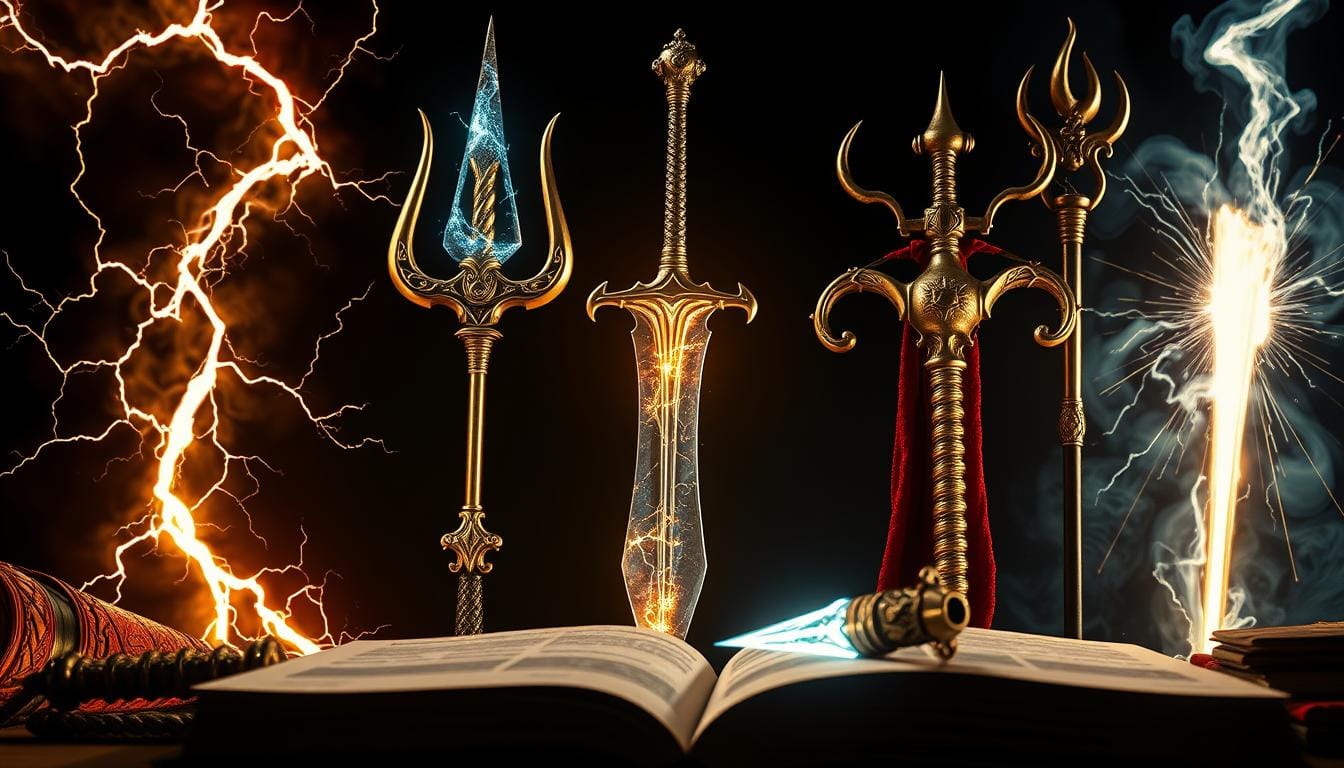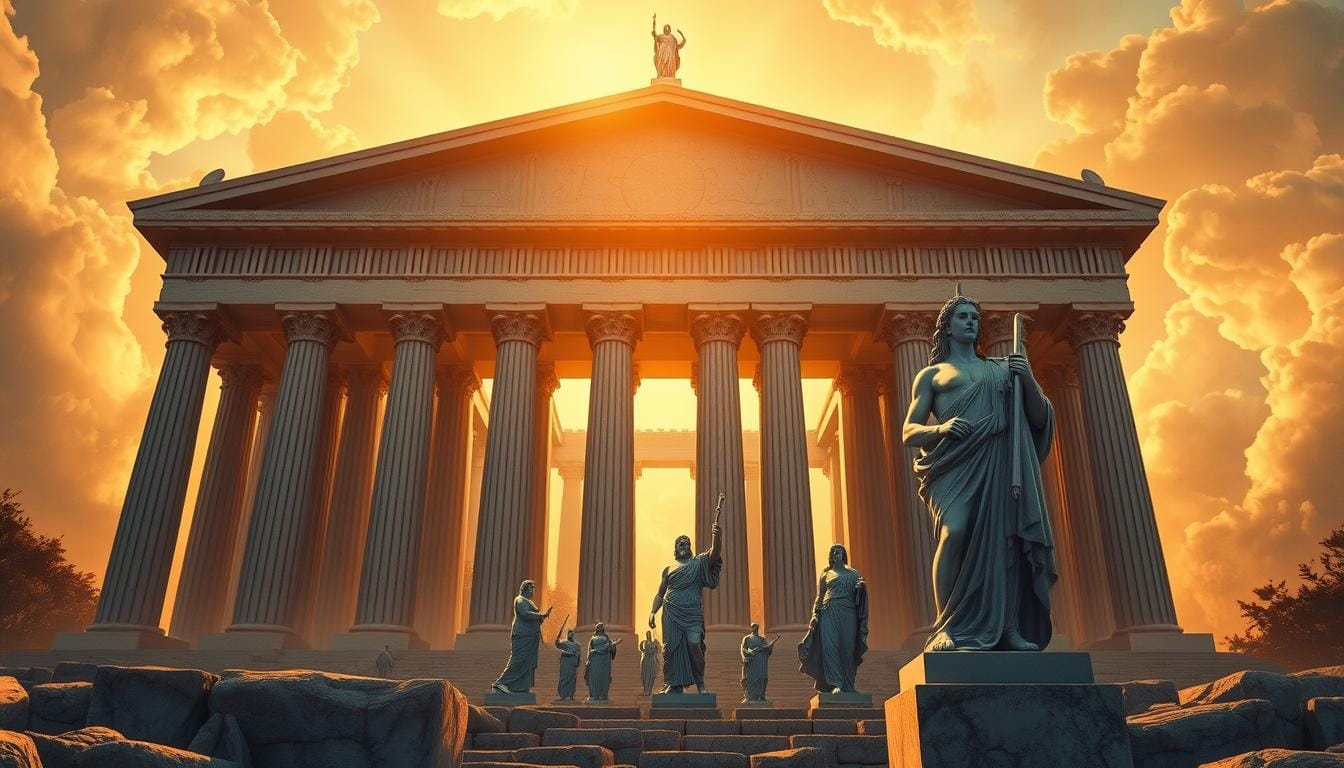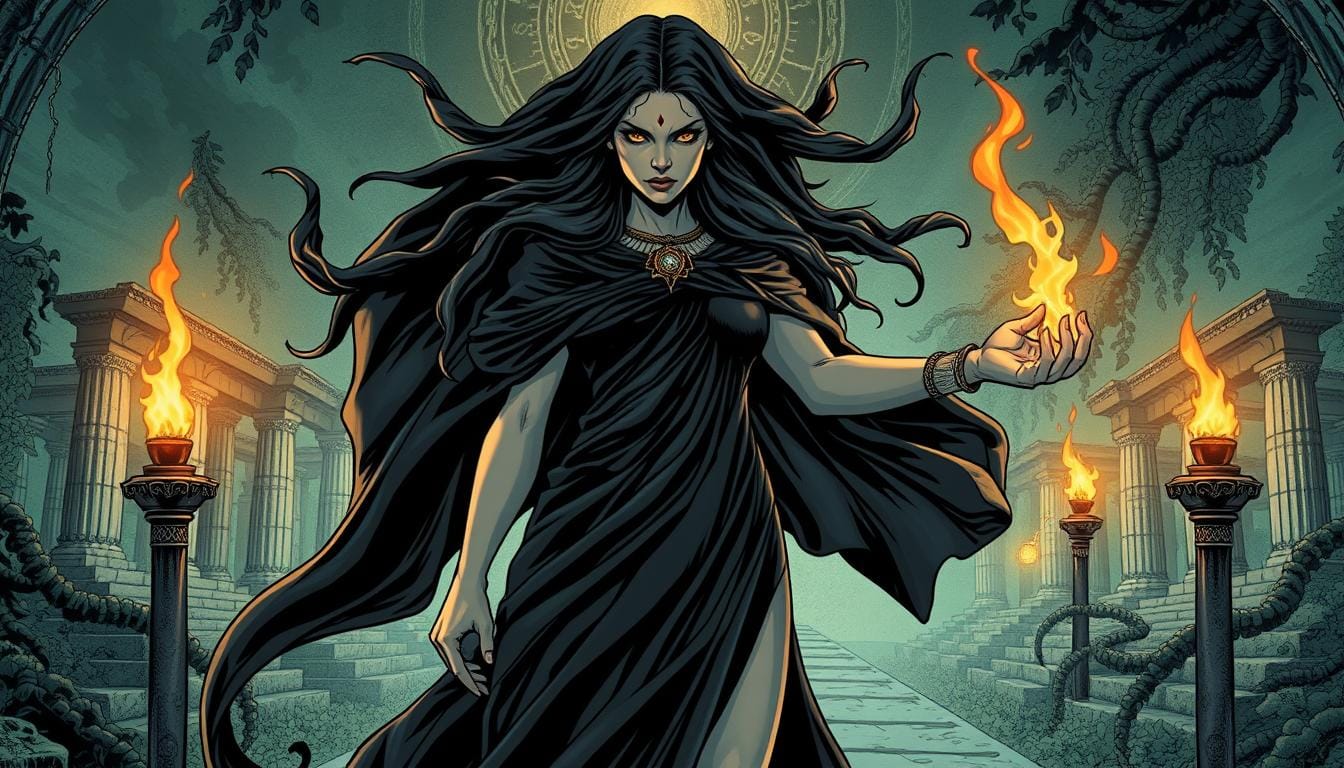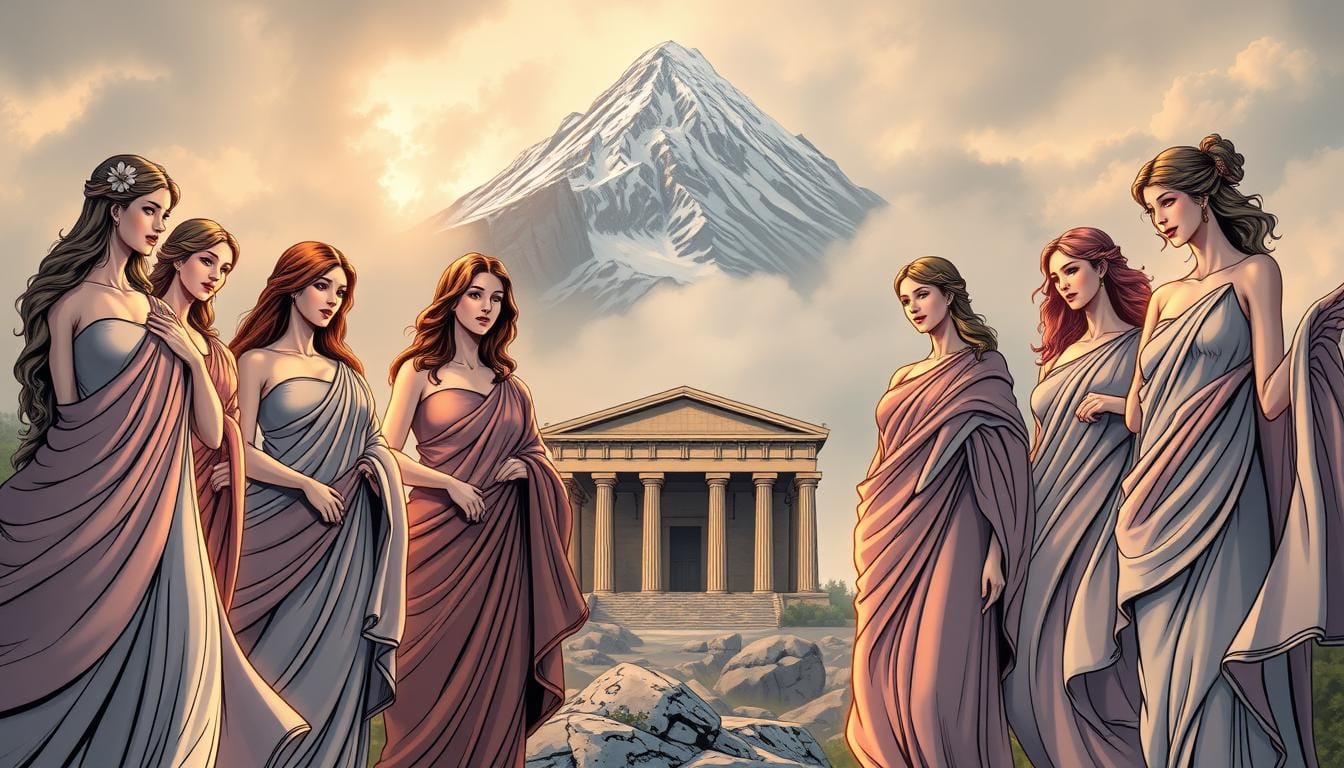In the vast pantheon of Greek mythology, few figures stand at the intersection of mortality and divinity quite like Hercules (known as Heracles to the Greeks). His extraordinary saga represents the ultimate hero’s journey—a tale of superhuman strength, devastating flaws, impossible trials, and eventual transcendence. Born a mortal with divine blood, Hercules would ultimately shed his human limitations to take his place among the gods of Mount Olympus. This transformation from hero to god not only captivated the ancient world but continues to resonate through centuries of art, literature, and popular culture.
The Divine Origins of a Mortal Hero
Zeus visits Alcmene disguised as her husband, setting in motion the birth of a hero destined for godhood
Hercules’ story begins with deception. Zeus, father of gods and notorious for his extramarital affairs, disguised himself as the general Amphitryon to seduce Amphitryon’s wife, Alcmene. That same night, the real Amphitryon returned from battle and also lay with his wife. This unusual circumstance led to Alcmene bearing twin sons: Iphicles, fathered by her mortal husband, and Hercules, son of Zeus.
From the moment of his conception, Hercules was marked for an extraordinary fate. As grandson of the hero Perseus and son of the king of gods, his bloodline combined the greatest of mortal heroism with divine power. Yet this divine parentage also earned him the undying enmity of Hera, Zeus’s wife, whose jealousy would shape the hero’s tumultuous life.
Infant Prodigy: Signs of Greatness
Hercules demonstrated his superhuman abilities from infancy. When Hera sent two serpents to kill the baby in his crib, the eight-month-old Hercules strangled them with his bare hands while his twin brother Iphicles cried in terror. This early display of strength and fearlessness foreshadowed the extraordinary feats that would define his life.

The infant Hercules strangling serpents sent by Hera, his first triumph over divine opposition
As he grew, Hercules received education from the finest tutors in Greece. He learned chariot-driving from his foster father Amphitryon, wrestling from Autolycus, archery from King Eurytus, and fencing from Castor. In every discipline, the young hero quickly surpassed his teachers, demonstrating that his destiny would far exceed ordinary human achievement.
The Twelve Labors: Trials on the Path to Redemption
The defining chapter in Hercules’ journey from hero to god began with tragedy. Struck with madness by the vengeful Hera, Hercules murdered his own wife Megara and their children in a blind rage. When his sanity returned and he realized what he had done, he sought purification and atonement. The Oracle of Delphi directed him to serve his cousin, King Eurystheus of Tiryns, for twelve years and complete whatever tasks were demanded of him.

Hercules at the Oracle of Delphi, receiving the prophecy that would set him on the path to godhood
These tasks, which became known as the Twelve Labors of Hercules, were designed to be impossible for any ordinary mortal. Eurystheus, jealous of his cousin’s strength and fame, intended them to result in Hercules’ death. Instead, they became the hero’s path to immortality, each labor demonstrating his worthiness for eventual godhood.
The Symbolic Meaning of the Twelve Labors
Each labor represented more than just a physical challenge—they symbolized the conquest of chaos, the triumph of civilization over barbarism, and the mastery of human limitations. By completing these tasks, Hercules was not merely displaying strength but demonstrating the qualities that would eventually elevate him from hero to god.
The First Six Labors: Conquering the Physical World
- The Nemean Lion: Hercules strangled an invulnerable lion whose hide no weapon could penetrate, then wore its skin as armor—symbolizing his adoption of invulnerability.
- The Lernaean Hydra: He defeated a nine-headed serpent that grew two heads for each one cut off, representing the conquest of regenerative evil.
- The Ceryneian Hind: Capturing this sacred golden-horned deer required patience and restraint rather than brute force—qualities essential for godhood.
- The Erymanthian Boar: Hercules captured alive a destructive mountain beast, showing mastery over wild nature.
- The Augean Stables: Cleaning stables that housed thousands of cattle by rerouting rivers demonstrated divine ingenuity and the purification of corruption.
- The Stymphalian Birds: Driving away man-eating birds with bronze beaks symbolized the defeat of predatory forces that plague humanity.
The Second Six Labors: Transcending Mortal Boundaries
- The Cretan Bull: Capturing the divine bull sent by Poseidon represented mastery over godly creations.
- The Mares of Diomedes: Taming man-eating horses symbolized the conquest of savage instincts.
- The Belt of Hippolyta: Obtaining the Amazon queen’s belt represented the hero’s complex relationship with female power.
- The Cattle of Geryon: Journeying to the edge of the world to steal cattle guarded by monsters represented expanding the boundaries of the known world.
- The Golden Apples of the Hesperides: Acquiring these divine fruits represented the hero’s growing claim to immortality.
- Capturing Cerberus: Bringing the three-headed guardian of the Underworld to the surface world demonstrated Hercules’ power over death itself—the final barrier between mortality and godhood.

Hercules battles the Lernaean Hydra, demonstrating the heroic strength that would eventually earn him godhood
Through these labors, Hercules demonstrated not just physical prowess but the full spectrum of qualities needed for divinity: strength, courage, intelligence, perseverance, and the ability to overcome death itself. Each victory brought him closer to transcending his mortal limitations and prepared him for his eventual place among the gods.
Trials Beyond the Labors: The Hero's Continuing Journey
Even after completing his twelve labors and earning his freedom from Eurystheus, Hercules’ journey continued. His life remained filled with extraordinary adventures that further demonstrated his progression from mortal hero toward divine status. These lesser-known exploits reveal the complexity of his character and the breadth of his influence on the ancient world.
Champion of Humanity: Hercules as Civilization's Defender

Hercules freeing Prometheus, demonstrating his role as humanity’s champion against divine punishment
One of Hercules’ most significant acts was freeing Prometheus, the Titan who had given fire to humanity and suffered eternal punishment for it. By killing the eagle that tormented Prometheus daily and breaking his chains, Hercules positioned himself as a champion of human progress against divine restrictions—foreshadowing his own eventual transcendence of the boundary between mortal and god.
Similarly, when Hercules encountered Atlas during his quest for the golden apples, he temporarily took the burden of holding up the sky, demonstrating his ability to assume divine responsibilities. This episode symbolically prepared him for his future role among the Olympians.
Wrestling with Death: Transcending Mortality
Perhaps most remarkably, Hercules once wrestled with Thanatos (Death) himself to save his friend King Admetus‘ wife, Alcestis. By physically overpowering the personification of death, Hercules demonstrated power over the fundamental limitation of mortality—a necessary step on his journey toward godhood.

Hercules wrestling with Death to save Alcestis, demonstrating his power over mortality itself
His descent into the Underworld to capture Cerberus further established his ability to cross between the realms of the living and the dead—a power typically reserved for gods. During this journey, he also rescued Theseus, who had been imprisoned in Hades, again demonstrating his power to defy the normal boundaries of life and death.
Divine Conflicts: Challenging the Gods
As Hercules grew in power and fame, he occasionally came into direct conflict with the gods themselves. He wounded Hera with an arrow during the battle with the Elean forces. He fought against Ares, the god of war, during the battle of Pylos. Most dramatically, he engaged in combat with Apollo over the Delphic tripod. These confrontations, rather than being acts of hubris, represented Hercules’ gradual elevation to the level of the gods—he was becoming their equal rather than their subject.

Hercules confronting Apollo over the Delphic tripod, showing his willingness to challenge divine authority
Through these extraordinary adventures beyond his famous labors, Hercules continued to demonstrate qualities that transcended ordinary heroism. Each exploit further blurred the line between his mortal nature and divine potential, preparing both himself and the world for his eventual apotheosis.
Apotheosis: The Hero's Transformation into God
The culmination of Hercules’ journey from mortal hero to immortal god came through tragedy and fire. His death and transformation represent one of mythology’s most profound examples of apotheosis—the elevation of a mortal to divine status.
The Shirt of Nessus: A Fatal Deception

Deianira giving Hercules the poisoned shirt of Nessus, unwittingly setting in motion his transformation
The catalyst for Hercules’ transformation came through his second wife, Deianira. Years earlier, the centaur Nessus had attempted to abduct her, prompting Hercules to kill him with arrows poisoned by the blood of the Hydra. With his dying breath, Nessus gave Deianira his blood-soaked tunic, falsely claiming it would ensure Hercules’ faithfulness if he ever strayed.
When Deianira later feared Hercules had fallen in love with the princess Iole, she gave him the tunic, not knowing it was poisoned with both Nessus’ blood and the Hydra’s venom. Upon wearing it, Hercules was immediately seized with excruciating pain as the poison burned into his flesh.
The Funeral Pyre: Burning Away Mortality
Realizing there was no cure for his agony, Hercules chose to end his suffering. He traveled to Mount Oeta, where he built a funeral pyre and laid himself upon it. None of his companions could bear to light it until finally his friend Philoctetes (or in some versions, Poeas) agreed to do so, receiving Hercules’ famous bow and arrows as reward.

Hercules on his funeral pyre, the mortal flesh burning away to reveal his divine essence
As the flames consumed his mortal body, something miraculous occurred. According to Apollodorus, “The pyre was kindled, but suddenly a cloud passed under Hercules and with a peal of thunder wafted him up to heaven.” The fire had burned away his mortal parts—those inherited from his mother Alcmene—leaving only his divine essence, the immortal portion inherited from Zeus.
Acceptance Among the Gods: The Final Transformation
Upon his arrival on Mount Olympus, Hercules was formally welcomed into the pantheon of gods. Zeus presented him to the assembled deities, and even Hera finally reconciled with her stepson. To seal his divine status, Hercules was given Hebe, the goddess of youth, as his wife—his fourth and final marriage, now as an immortal to an immortal.

Hercules welcomed to Mount Olympus, his transformation from hero to god complete
This transformation represents the complete fulfillment of Hercules’ journey. Through his labors and trials, he had proven himself worthy of divinity. Through fire, his mortal limitations were burned away. And through divine acceptance, his new status was confirmed. The hero had become a god.
Interestingly, Homer’s Odyssey suggests a more complex outcome, describing Odysseus meeting Hercules’ shade in the Underworld while “he himself” feasts with the immortals on Olympus. This duality—the hero simultaneously in Hades and Olympus—perhaps reflects the complexity of his nature as both mortal and divine.
Legacy in Ancient Culture: The Cult of Hercules
Following his apotheosis, Hercules became one of the most widely venerated figures in the ancient Mediterranean world. His cult spread throughout Greece and was later enthusiastically adopted by the Romans, who knew him as Hercules. The worship of this hero-turned-god reveals much about how ancient peoples understood the relationship between mortality and divinity.
Protector and Champion: Hercules as Divine Guardian

Worshippers bringing offerings to a temple of Hercules, seeking the hero-god’s protection
As a deity, Hercules was primarily worshipped as a protector against evil and a champion of civilization. Cities throughout the Mediterranean built temples to him, particularly at places associated with his labors or other adventures. His cult was especially popular among warriors, athletes, and travelers who sought his strength and protection.
Uniquely, Hercules was often worshipped with dual rituals—first as a hero with chthonic (underworld) rites, then as a god with Olympian ceremonies. This dual nature reflected his status as a bridge between the mortal and divine realms, making him particularly accessible to human worshippers.
Symbol of Perseverance: Hercules in Philosophy and Ethics
Beyond religious worship, Hercules became an important philosophical symbol in the ancient world. The Cynics and Stoics particularly admired him as an exemplar of virtue and endurance. His choice between the paths of virtue and pleasure (known as “The Choice of Hercules”) became a standard ethical parable.

“The Choice of Hercules” between Virtue and Vice, a moral allegory that became central to his legacy
The philosopher Prodicus created this allegory in which the young Hercules meets two women at a crossroads: one representing Virtue (difficult but rewarding) and the other representing Vice (easy but ultimately destructive). His choice of the harder path became a metaphor for moral strength and the pursuit of excellence despite hardship.
Political Symbol: Hercules as Divine Patron
Many rulers and dynasties claimed descent from or special connection to Hercules. The Macedonian royal house, including Alexander the Great, traced their lineage to him. Later, Roman generals and emperors, particularly Commodus, identified themselves with Hercules, using his imagery on coins and in statues to associate themselves with his strength and divine status.

Roman Emperor Commodus portrayed as Hercules, demonstrating the political power of the hero-god’s image
This political appropriation of Hercules speaks to the power of his story. As a figure who had transcended mortality through his own efforts, he represented the ultimate aspiration of powerful men—to rise beyond human limitations and achieve lasting glory.
Modern Interpretations: Hercules in Contemporary Culture
The journey of Hercules from hero to god continues to captivate the modern imagination. His story has been reinterpreted countless times in literature, art, psychology, and popular media, each version highlighting different aspects of his complex transformation.
Hercules in Literature and Art: Evolving Interpretations

Contemporary artistic interpretation of Hercules, exploring the psychological dimensions of his journey
In modern literature, Hercules has been portrayed with increasing psychological depth. Writers have explored the trauma behind his madness, the burden of his strength, and the complexity of his transformation. Robert Graves’ The Greek Myths and Madeline Miller’s approach to Greek mythology exemplify this more nuanced treatment of ancient heroes.
Artists continue to find inspiration in Hercules’ journey, often focusing on the moment of apotheosis as a powerful symbol of transformation and transcendence. Contemporary interpretations frequently emphasize the human aspects of his story—the struggle, suffering, and growth that preceded his divine elevation.
Psychological Interpretations: The Hercules Complex
Psychologists have identified what they call the “Hercules complex”—a pattern of behavior characterized by attempting to achieve self-worth through constant trials and labors. This psychological framework sees Hercules as the archetypal striver, constantly seeking to prove himself through ever-greater challenges.

Visual representation of the “Hercules Complex” in psychology, connecting ancient myth to modern understanding
Carl Jung and his followers viewed Hercules as an important archetypal figure representing the hero’s journey toward individuation—the integration of the conscious and unconscious aspects of the self. In this interpretation, Hercules’ apotheosis symbolizes the achievement of psychological wholeness.
Hercules in Popular Media: From Disney to Superheroes
Perhaps the most widely known modern interpretation of Hercules comes from Disney’s 1997 animated film, which reimagines his journey from god to mortal and back to god. Though taking significant liberties with the original myth, the film captures the essential theme of earning divinity through heroic deeds and self-sacrifice.

The influence of Hercules on modern superhero narratives, showing the continuity of the hero archetype
The modern superhero genre owes much to Hercules. His combination of extraordinary abilities, human flaws, and transcendent destiny established a template that continues to influence characters from Superman to Thor. The journey from ordinary to extraordinary—and sometimes to godlike—remains a central theme in these contemporary heroic narratives.
Video games like “God of War” and “Assassin’s Creed Odyssey” have also incorporated elements of Hercules’ story, allowing players to interact with this mythological figure or even follow similar paths of heroic achievement and divine ascension.
Conclusion: The Enduring Power of Divine Transformation

Hercules between earth and Olympus, embodying the eternal human aspiration to transcend limitations
The journey of Hercules from mortal hero to immortal god resonates across millennia because it speaks to fundamental human aspirations. His story embodies the hope that through extraordinary effort, courage, and suffering, we might transcend our limitations and achieve something greater than our ordinary existence.
What makes Hercules particularly compelling is that his divinity was not given but earned. Unlike other figures in Greek mythology who were born gods, Hercules achieved godhood through his labors and trials. His transformation represents the ultimate meritocratic myth—the belief that greatness comes through action rather than circumstance.
The duality of Hercules—simultaneously the most human of heroes and a divine power—creates a figure with whom we can identify even as we stand in awe of his achievements. His flaws and sufferings make him accessible; his triumphs and transformation make him inspirational.
In an age that still hungers for heroes and still dreams of transcendence, Hercules continues to offer a powerful narrative template. His journey from hero to god remains the ultimate story of transformation—a reminder that the boundary between human and divine may be crossed through extraordinary deeds, indomitable will, and the courage to face our greatest trials.
Further Exploration: Delving Deeper into the Hercules Myth
Discover More About Greek Mythology
If you’ve enjoyed learning about Hercules’ transformation from hero to god, there’s a wealth of resources to explore this fascinating mythology further. From scholarly works to engaging retellings, the world of Greek mythology offers endless opportunities for discovery.
- Primary Sources: Hesiod’s Theogony, Euripides’ Heracles, and Apollodorus’ Library provide ancient perspectives on the Hercules myth.
- Modern Interpretations: Explore contemporary retellings by authors like Madeline Miller, Stephen Fry, and Robert Graves.
- Academic Studies: Walter Burkert’s Greek Religion and Karl Kerényi’s The Heroes of the Greeks offer scholarly insights into heroic mythology.
Join Our Mythology Newsletter
Receive monthly insights into ancient myths, heroic journeys, and divine transformations. Our expert-curated content explores the timeless wisdom of mythological narratives and their relevance to contemporary life.
